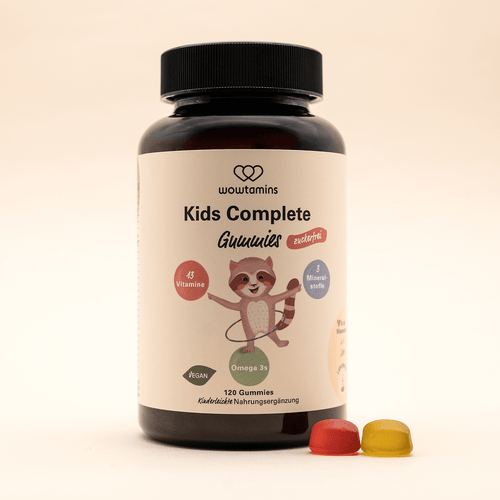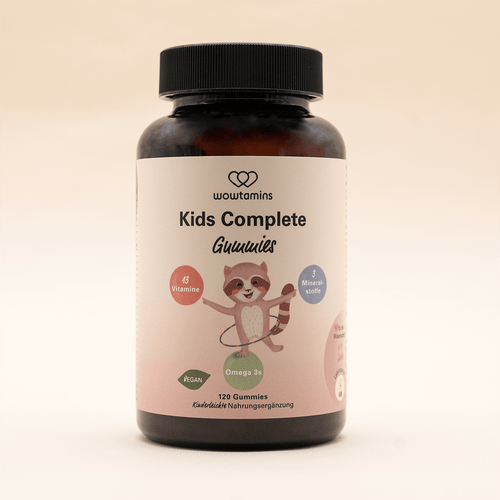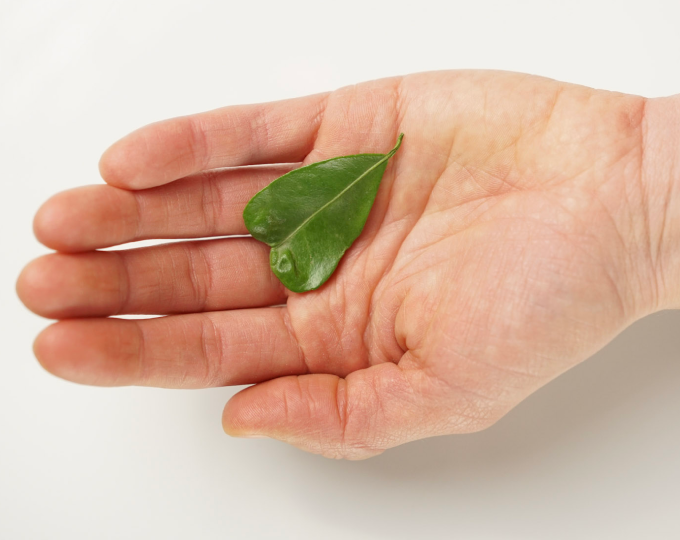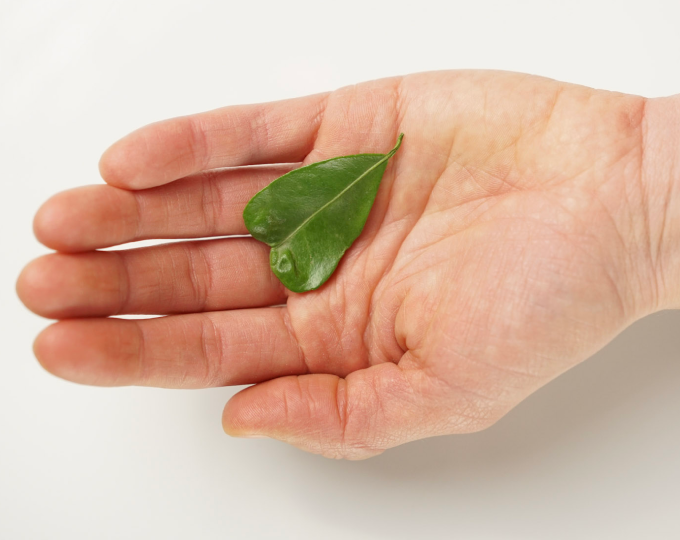Themen dieses Blogartikels:
What is vitamin b2?
Vitamin B2 is a water-soluble vitamin of the B vitamin group. The medical name is riboflavin.
What are the functions of vitamin b2?
Riboflavin is part of the coenzyme FAD/FADH2 (flavin adenine dinucleotide)1. This is involved in many metabolic reactions, including energy metabolism reactions in the mitochondrion. It can temporarily absorb electrons and then transfer them into the respiratory chain. FAD, and therefore riboflavin, is also required for fat burning2. Riboflavin is also involved in the production of red blood cells and therefore in blood formation. It is also a potential antioxidant and can therefore protect against oxidative cell stress.3
What makes vitamin b2 unique?
Vitamin B2 plays a central role in metabolism due to its presence in the coenzyme FAD. In total, riboflavin is involved in around 60 reactions in the metabolism, including one reaction in the glutathione metabolism. Glutathione is a very important endogenous antioxidant. It is also involved in the body's own detoxification processes.4
How much vitamin b2 do you need per day?
The recommended riboflavin intake according to the German Nutrition Society (DGE) is as follows6:
| Age | Riboflavin mg/day male | Riboflavin mg/day female |
| Infants | ||
| 0 to under 4 months | 0,3 | 0,3 |
| 4 to under 12 months | 0,4 | 0,4 |
| Children and teenagers | ||
| 1 to under 4 years | 0,7 | 0,7 |
| 4 to under 7 years | 0,8 | 0,8 |
| 7 to under 10 years | 1,0 | 0,9 |
| 10 to under 13 years | 1,1 | 1,0 |
| 13 to under 15 years | 1,4 | 1,1 |
| 15 to under 19 years | 1,6 | 1,2 |
| Adults | ||
| 19 to under 25 years | 1,4 | 1,1 |
| 25 to under 51 years | 1,4 | 1,1 |
| 51 to under 65 years | 1,3 | 1,0 |
| 65 years and older | 1,3 | 1,0 |
| Pregnant women | ||
| 2rd trimester | 1,3 | |
| 3rd trimester | 1,4 | |
| Breastfeeding | 1,4 |
When do you need vitamin b2 most?
If your energy metabolism is particularly challenged, an extra portion of riboflavin can't hurt. Riboflavin also contributes to a beautiful complexion and healthy mucous membranes, as it supports the growth of skin cells5. Riboflavin can therefore also support the body if the skin and mucous membranes are very dry.
How does an vitamin b2 deficiency develop and how does it manifest itself?
A riboflavin deficiency is usually accompanied by a deficiency of other B vitamins and can often be traced back to the eating habits of the person affected. For example, a strict vegan diet can lead to a vitamin B2 deficiency. However, taking certain medications and chronic conditions such as frequent diarrhea or liver disease also increase the risk. A deficiency can manifest itself in symptoms such as torn corners of the mouth and an inflamed oral mucosa. Visual disturbances can also be a consequence of riboflavin deficiency.7
What happens if there is an overdose of vitamin b2?
A harmful effect of a riboflavin overdose is not known. Excess vitamin B2 is excreted in the urine or stool.8
Which foods are particularly high in vitamin b2?
In contrast to many other vitamins, riboflavin is not particularly sensitive to heat. But be careful with light! Vitamin B2 is mainly found in dairy products, in vegetables such as spinach or in fish, eggs and wholegrain products.
This dictionary entry is based on carefully researched sources:
Bibliography & Sources
- vitaminforschung.org/fileadmin/user_upload/Wissenswerts/Informationsblaetter/Informationsblatt_Riboflavin_Vitamin_B2.pdf
- fet-ev.eu/vitamin-b2/
- cambridge.org/core/journals/british-journal-of-nutrition/article/riboflavin-is-an-antioxidant-a-review-update/6434B395E5D41953FDF975198679FF59
- tk.de/techniker/magazin/ernaehrung/essen-und-wissen/vitamin-b2-riboflavin-2004744?tkcm=aaus
- drhohmuth-urologe.de/blog/gesunde-haut-augen-und-blut-mit-vitamin-b2
- dge.de/science/reference values/riboflavin/
- msdmanuals.com/de-de/heim/ern%C3%A4hrungsst%C3%B6rungen/vitamins/riboflavin deficiency
- netdoktor.de/ernaehrung/lebensmittel/vitamin-b2-lebensmittel/


























